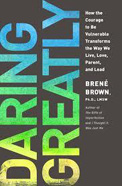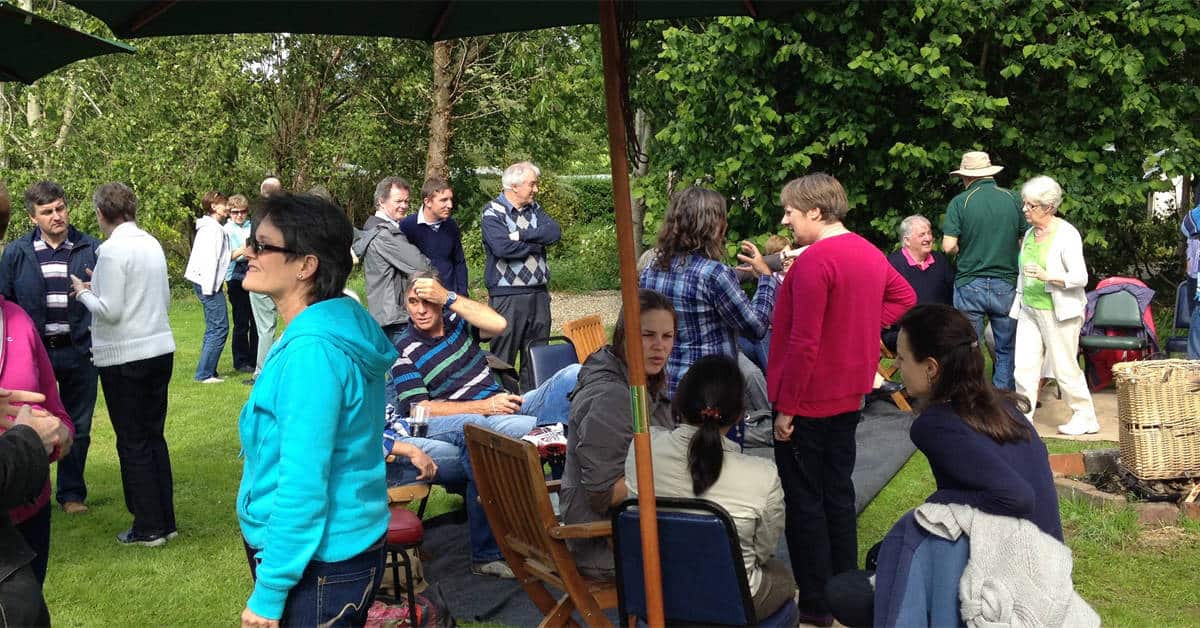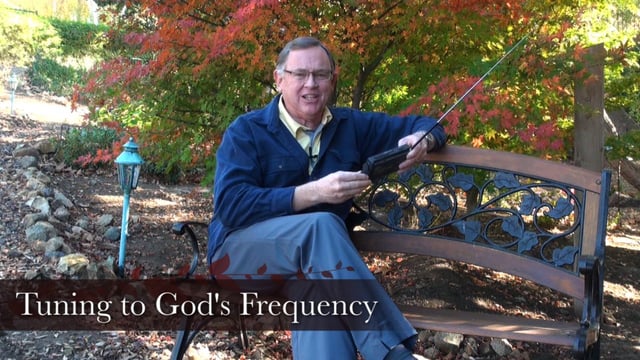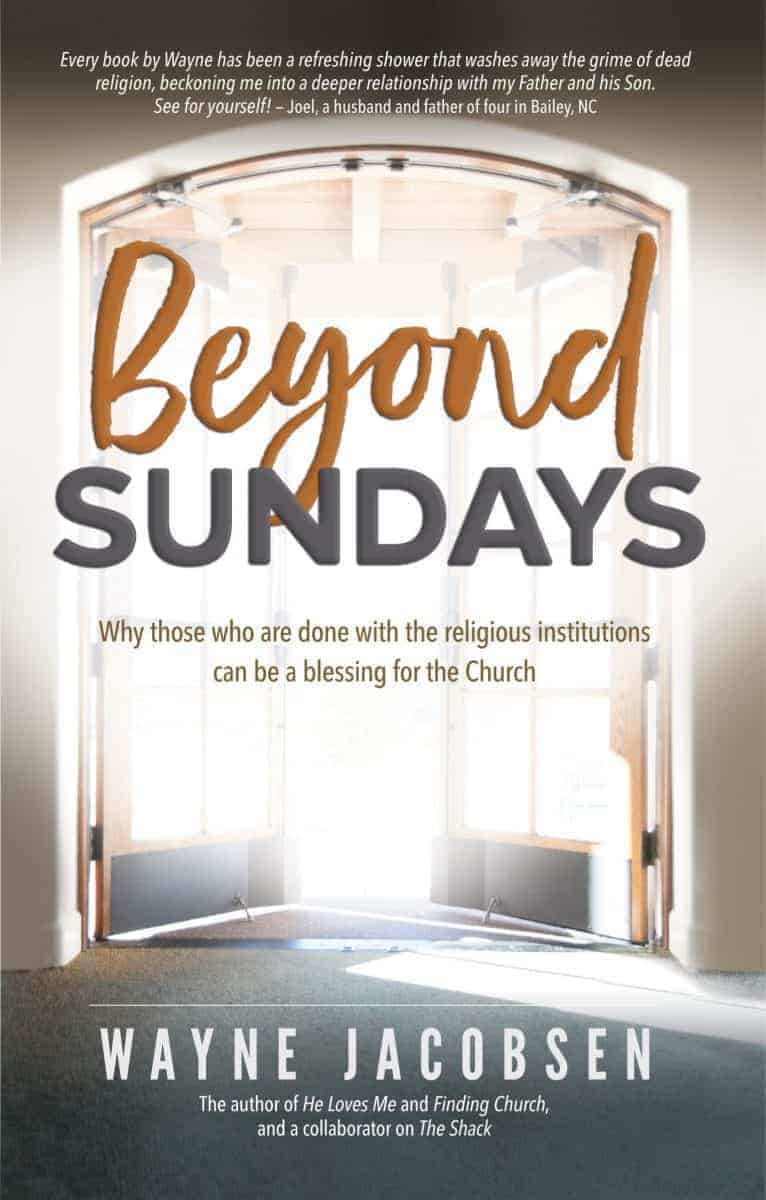 Sara and I have just finished Dr. Brené Brown’s latest book, Daring Greatly. In all honesty, we did not enjoy it near as much as her second bookThe Gifts of Imperfection, which was more tightly written and seemed less like a publisher-motivated book to keep the franchise alive. Nonetheless this one had some great moments in it.
Sara and I have just finished Dr. Brené Brown’s latest book, Daring Greatly. In all honesty, we did not enjoy it near as much as her second bookThe Gifts of Imperfection, which was more tightly written and seemed less like a publisher-motivated book to keep the franchise alive. Nonetheless this one had some great moments in it.
In one chapter she is dealing with the difference between true belonging with others and simply fitting in. She concludes that merely trying to fit in is one of the greatest barriers to really belonging. “Fitting in is about assessing a situation and becoming who you need to be in order to be accepted. Belonging, on the other hand doesn’t requires us to change who we are; it requires us to be who we are.” (Emphasis hers.)
Her words directly apply to how we can foster community among those who want to share a journey of faith and why conformity-based environments can only provide an illusion of community, but not its reality. Conformity groups set an ideal and ask people to pretend that’s what they are to fit in. They feel threatened by people’s honest questions and struggles and will often penalize or marginalize those who don’t do what they are expected. Real community, however, creates a safe place for people to be authentic and would rather celebrate in the struggle rather than force them to act better.
Once Dr. Brown asked a large group of eighth graders to break into small teams and to come up with the difference between fitting into a group and belonging to a group. What they came up with surprised her with their simplicity and insight:
Belonging is being somewhere where you want to be, and they want you. Fitting in is being somewhere you really want to be, but they don’t care one way or the other. Belonging is being accepted for you. Fitting in is being accepted for being like everyone else. I get to be me if I belong. I have to be like you to fit in.
How amazing that 13 and 14 year-olds would already know the difference, even though they admitted that they had few places they really felt like they could belong. The people with whom you share true community are those who love you where you are and see no value in making you pretend to be anything different. That’s where real love can be expressed and the incubator in which real transformation can take place.
How do you find a group like that? I know thousands of people who are looking for one. But the key is not to find a group like that so much as it is to be a person like that. When you can help others find a safe place for their struggle, you’ll find a safe place for yours as well.








Wayne,
This is a great post. Thanks for sharing it. We have become aware of Brene’s work in the past few months and are finding it very helpful for us and for our clients. We haven’t read her latest book, but we agree that “The Gifts of Imperfection” is very good and again, helpful for those we work with. Thanks for your writings and videos as well. We really like your book, “He Loves Me” and have used it a lot.
Wayne,
I would say thanks but that’s really not the right word…for sharing about The Gifts of Imperfection. It was a painful read as I worked through the audio book where I found myself on so many pages as Dr. Brown talked about shame.
Your comments about Dr. Brown’s observations about fitting in and belonging are quite insightful. Friendship, or perceived friendship is similar…we can assume so many people are our friends when the friendship is really a task-based relationship (whether at work, a civic organization, or “church”). Remove the task and the friendship vaporizes. Being genuine and finding somewhere or someone with which you can belong is the only way to a true and lasting friendship.
With expectancy for Papa working through you in 2013.
Barry
Insightful! Still waiting for The Gifts of Imperfection from my local library but read a sample on my Kindle. I also plan to re-read your book, In Season, on my Kindle. I really appreciate your book referrals and recommendations. It’s a nice variety from my usual repertoire of literary fiction.
Wayne,
This is a great post. Thanks for sharing it. We have become aware of Brene’s work in the past few months and are finding it very helpful for us and for our clients. We haven’t read her latest book, but we agree that “The Gifts of Imperfection” is very good and again, helpful for those we work with. Thanks for your writings and videos as well. We really like your book, “He Loves Me” and have used it a lot.
the essence of belonging, to me, is taking ownership of what i already have, versus the essence of conformity, trying to get what i don’t have. there are certain qualities of my life that make it very easy to belong to certain groups, based on interests and/or life experiences. the areas where i have to conform, there is a struggle.
i find it much easier to belong to God than i do to other people. i often struggle being comfortable in my own skin, comfortable with the image that God made me , in the context of society and the world at-large. at times i give myself away so easily, and then kick myself when i do, and go into retreat mode.
the world is relentless in trying to squeeze you into its mold, and where it has squeezed me the most is the areas of work ethic and the pursuit of security, which has come at the expense of personal relationships. i’d rather stay in my cocoon of self-reliance than deal with the messiness that comes with interacting with imperfect, sinful people. yet i cry out that i don’t have enough authentic relationships in my life. something has to give. i take comfort in the fact that i can wait upon God to bring about solutions in His way, in His timing, not mine.
Wayne,
I would say thanks but that’s really not the right word…for sharing about The Gifts of Imperfection. It was a painful read as I worked through the audio book where I found myself on so many pages as Dr. Brown talked about shame.
Your comments about Dr. Brown’s observations about fitting in and belonging are quite insightful. Friendship, or perceived friendship is similar…we can assume so many people are our friends when the friendship is really a task-based relationship (whether at work, a civic organization, or “church”). Remove the task and the friendship vaporizes. Being genuine and finding somewhere or someone with which you can belong is the only way to a true and lasting friendship.
With expectancy for Papa working through you in 2013.
Barry
Insightful! Still waiting for The Gifts of Imperfection from my local library but read a sample on my Kindle. I also plan to re-read your book, In Season, on my Kindle. I really appreciate your book referrals and recommendations. It’s a nice variety from my usual repertoire of literary fiction.
the essence of belonging, to me, is taking ownership of what i already have, versus the essence of conformity, trying to get what i don’t have. there are certain qualities of my life that make it very easy to belong to certain groups, based on interests and/or life experiences. the areas where i have to conform, there is a struggle.
i find it much easier to belong to God than i do to other people. i often struggle being comfortable in my own skin, comfortable with the image that God made me , in the context of society and the world at-large. at times i give myself away so easily, and then kick myself when i do, and go into retreat mode.
the world is relentless in trying to squeeze you into its mold, and where it has squeezed me the most is the areas of work ethic and the pursuit of security, which has come at the expense of personal relationships. i’d rather stay in my cocoon of self-reliance than deal with the messiness that comes with interacting with imperfect, sinful people. yet i cry out that i don’t have enough authentic relationships in my life. something has to give. i take comfort in the fact that i can wait upon God to bring about solutions in His way, in His timing, not mine.
“To be nobody but yourself in a world which is doing its best day and night to make you everybody else, means to fight the hardest battle which any human being can fight, and never stop fighting.” E.E. CUMMINGS
Wayne, this is IT. What if living less loved stems from “conformity-based environments can only provide the ILLUSION of community but not its reality”.
NPR is running a series called “Losing our Religion” and one of the roundtable discussions they pursue this issue of “Belonging” and “fitting in”. Main reasons given for rejection of their childhood religions is because they no longer felt like they “belonged” inside those communities. One of the young people says something about having a bicycle club and book club and different things that he believed is an experience of community so he didn’t think that was his problem. What if your statement is true for all communities not just religious.
Curtis and I have found it amusing for years as our culture through the media has used terms “scientific community” “gay community” “black community” and we were like “what is that?” Is this true or real? Or is it an illusion?
Real community takes a lot of work and selflessness and honesty. People think they want community and then when it gets hard they run and say its not possible. Staying in the struggle with people who have a lens different from yours brings you into reality. The whole enchilada is a miracle. Truly the road is narrow.
I have borrowed from this blog to help describe our community at TBC/Conversations. I am so grateful you continually put words to my experiential reality. It resonates so sweetly.
“To be nobody but yourself in a world which is doing its best day and night to make you everybody else, means to fight the hardest battle which any human being can fight, and never stop fighting.” E.E. CUMMINGS
Wayne, this is IT. What if living less loved stems from “conformity-based environments can only provide the ILLUSION of community but not its reality”.
NPR is running a series called “Losing our Religion” and one of the roundtable discussions they pursue this issue of “Belonging” and “fitting in”. Main reasons given for rejection of their childhood religions is because they no longer felt like they “belonged” inside those communities. One of the young people says something about having a bicycle club and book club and different things that he believed is an experience of community so he didn’t think that was his problem. What if your statement is true for all communities not just religious.
Curtis and I have found it amusing for years as our culture through the media has used terms “scientific community” “gay community” “black community” and we were like “what is that?” Is this true or real? Or is it an illusion?
Real community takes a lot of work and selflessness and honesty. People think they want community and then when it gets hard they run and say its not possible. Staying in the struggle with people who have a lens different from yours brings you into reality. The whole enchilada is a miracle. Truly the road is narrow.
I have borrowed from this blog to help describe our community at TBC/Conversations. I am so grateful you continually put words to my experiential reality. It resonates so sweetly.